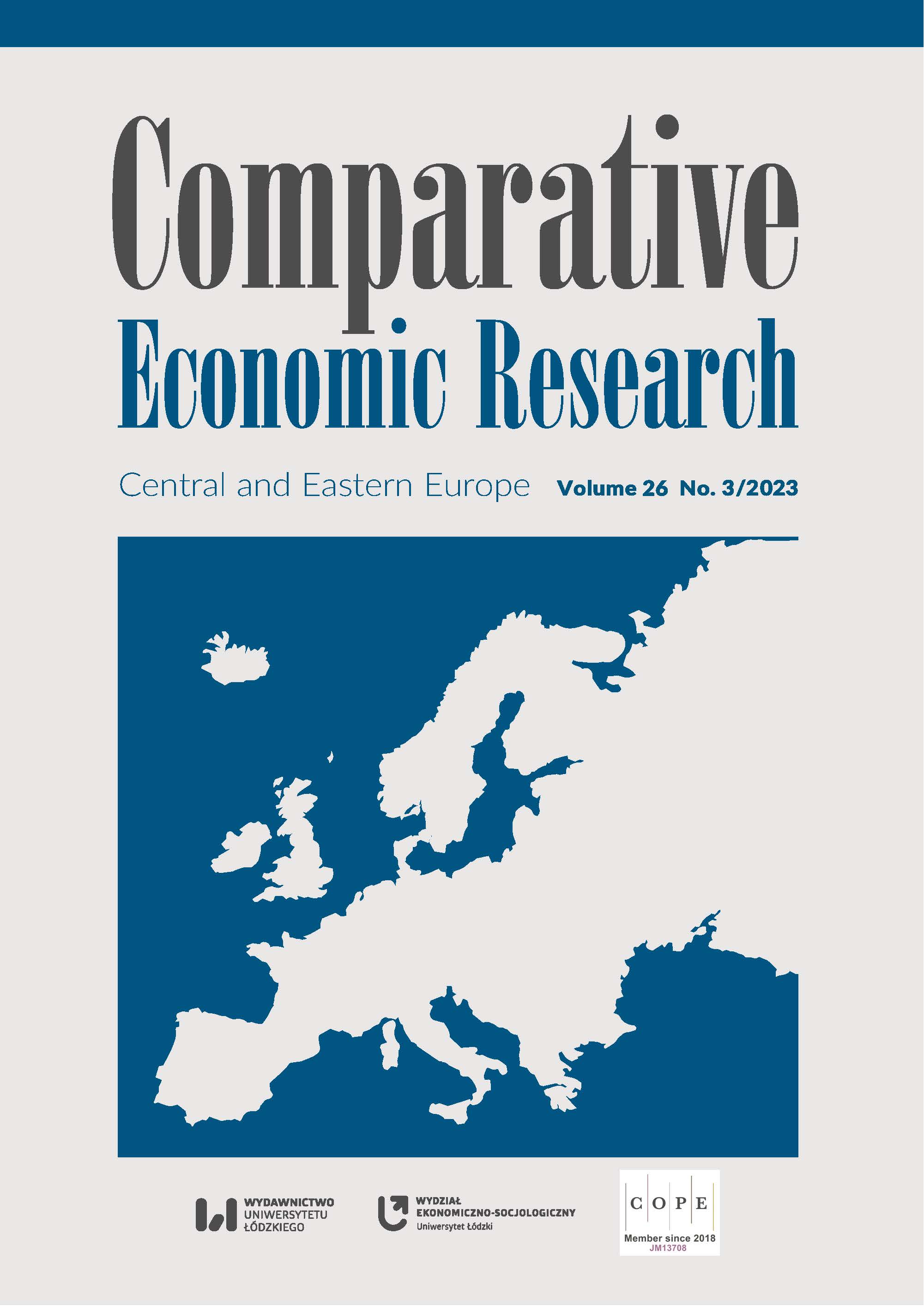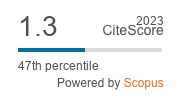Polish Adaptation Policy to Climate Change vs. EU Countries’ Adaptation Policies
DOI:
https://doi.org/10.18778/1508-2008.26.24Keywords:
climate change, adaptation, adaptation policiesAbstract
The purpose of this study is to compare the advancement of Poland’s adaptation policy with the policy of other EU countries. Benchmarking was used, and the research was preceded by comparing the degree of climate change impact on the economies of individual EU countries. The study used 12 comparative quantities, forecast to 2100 for 27 countries. The added value of the analysis is the diagnosis that indicates whether the advancement of the adaptation policy of individual countries is appropriate for the projected climate change, together with the indication of the level of the adaptation policy in Poland compared to other member states. It was determined that, compared to Western countries, Poland has the lowest projected impact of climate change, as represented by selected indicators in the study, but it also has the lowest degree of adaptation policies. However, comparing Poland with the other countries that joined the EU in 2004 shows the opposite trend. The survey is a starting point for further analysis of adaptation in its broadest sense, at national, EU, and global levels. It indicates that despite the high rate of increase in the negative consequences of climate change, the implementation of adaptation policies is still insufficient and often at an early stage of planning.
Downloads
References
BLM (n.d.), Mitigation, https://www.blm.gov/how-we-manage/mitigation-policy (accessed: 29.06.2022).
Google Scholar
Christensen, J., Carter, T., Rummukainen, M. (2007), Evaluating the performance and utility of regional climate models The PRUDENCE project, “Climate Change”, 8, pp. 1–6, https://doi.org/10.1007/s10584-006-9211-6
Google Scholar
DOI: https://doi.org/10.1007/s10584-006-9211-6
Ciscar, J., Iglesias, A., Soria, A. (2011), Physical and economic consequences of climate change in Europe, “PNAS”, 108 (7), pp. 2678–26837, https://doi.org/10.1073/pnas.1011612108
Google Scholar
DOI: https://doi.org/10.1073/pnas.1011612108
European Commission (2009), Regions 2020 the climate change challenge for European regions, Brussels, https://espas.secure.europarl.europa.eu/orbis/sites/default/files/generated/document/en/regions2020_climat.pdf (accessed: 1.04.2023).
Google Scholar
European Commission (2017), GEM E3 model, Brussels, https://ec.europa.eu/jrc/en/gem-e3/model (accessed: 8.11.2017).
Google Scholar
Eurostat (2014), EEA Report, National adaptation policy processes in European countries – 2014, Luxembourg, pp. 24–27, http://ec.europa.eu/eurostat/data/database (accessed: 31.03.2021).
Google Scholar
Hoegh-Guldberg, O., Jacob, D., Taylor, M., Bindi, M., Brown, S., Camilloni, I., Diedhiou, A., Djalante, R., Ebi, K.L., Engelbrecht, F., Guiot, J., Hijioka, Y., Mehrotra, S., Payne, A., Seneviratne, S.I., Thomas, A., Warren, R., Zhou, G. (2018), Impacts of 1.5ºC Global Warming on Natural and Human Systems, [in:] V. Masson-Delmotte, P. Zhai, H.-O. Pörtner, D. Roberts, J. Skea, P.R. Shukla, A. Pirani, W. Moufouma-Okia, C. Péan, R. Pidcock, S. Connors, J.B.R. Matthews, Y. Chen, X. Zhou, M.I. Gomis, E. Lonnoy, T. Maycock, M. Tignor, T. Waterfield (eds.), Global Warming of 1.5°C. An IPCC Special Report on the impacts of global warming of 1.5°C above pre-industrial levels and related global greenhouse gas emission pathways, in the context of strengthening the global response to the threat of climate change, sustainable development, and efforts to eradicate poverty, World Meteorological Organization Technical Document, Geneva, pp. 175–311, https://www.ipcc.ch/site/assets/uploads/sites/2/2019/02/SR15_Chapter3_Low_Res.pdf (accessed: 9.06.2022).
Google Scholar
DOI: https://doi.org/10.1017/9781009157940.005
Klein, R.J.T., Huq, S., Denton, F., Downing, T.E., Richels, R.G., Robinson, J.B., Toth, F.L. (2007), Inter-relationships between adaptation and mitigation, [in:] M.L. Parry, O.F. Canziani, J.P. Palutikof, P.J. van der Linden, C.E. Hanson, (eds.), Climate Change 2007: Impacts, Adaptation and Vulnerability. Contribution of Working Group II to the Fourth Assessment Report of the Intergovernmental Panel on Climate Change, Cambridge University Press, Cambridge, pp. 745–777, https://www.ipcc.ch/site/assets/uploads/2018/02/ar4-wg2-chapter18-1.pdf (accessed: 9.06.2022).
Google Scholar
Lim, B., Spanger-Siegfried, E. (2004), Adaptation Policy Frameworks for Climate Change: Developing Strategies, Policies and Measures, UNDP, Cambridge University Press, Cambridge, https://www4.unfccc.int/sites/NAPC/Country%20Documents/General/apf%20front%20matter_contents_foreword.pdf (accessed: 29.06.2022).
Google Scholar
Norwegian Meteorological Institute (2013), Extreme Weather Events in Europe: preparing for climate change adaptation, EASAE, http://real.mtak.hu/8366/1/EASAC_EWWG_Extreme_weather_report.pdf (accessed: 10.06.2022)
Google Scholar
PESETA (2009), Climate change impacts in Europe, Final report of the PESETA research project, JRC EU, https://publications.jrc.ec.europa.eu/repository/bitstream/JRC55391/jrc55391.pdf (accessed: 26.07.2023).
Google Scholar
Watson R.T., the Core Team (eds.) (2001), Climate Change 2001: Synthesis Report, Cambridge University Press, Cambridge–New York.
Google Scholar
World Bank (2010), Development and Climate Change. World Development Report 2010, Washington.
Google Scholar
Downloads
Published
How to Cite
Issue
Section
License

This work is licensed under a Creative Commons Attribution-NonCommercial-NoDerivatives 4.0 International License.











